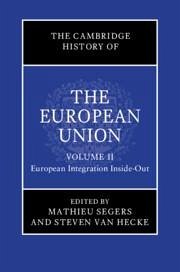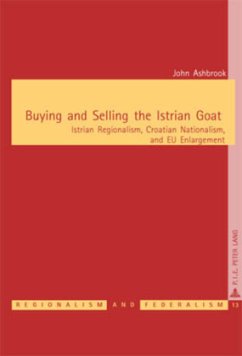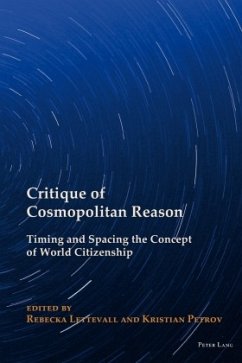
The Cambridge History of the European Union: Volume 2, European Integration Inside-Out
Versandkostenfrei!
Versandfertig in über 4 Wochen
155,99 €
inkl. MwSt.
Weitere Ausgaben:

PAYBACK Punkte
78 °P sammeln!
Volume II examines the history of the European Union from an inside-out perspective, focusing on the internal developments that shaped the European integration process. Split into three parts, Part I covers the principles that have defined European integration, exploring the treaties and their changes through time, with Brexit being a core milestone. Part II considers the different instruments within the architecture of European integration, with special focus on the development of policies, the euro and enlargement. Part III concentrates on the various narratives surrounding European integrat...
Volume II examines the history of the European Union from an inside-out perspective, focusing on the internal developments that shaped the European integration process. Split into three parts, Part I covers the principles that have defined European integration, exploring the treaties and their changes through time, with Brexit being a core milestone. Part II considers the different instruments within the architecture of European integration, with special focus on the development of policies, the euro and enlargement. Part III concentrates on the various narratives surrounding European integration, in particular the concepts, goals and ideas that both spoke and failed to speak to the hearts and minds of Europeans. This includes the 'longue durée' concept, peace, European culture, (the absence of) religion, prosperity and (a lack of) solidarity and democracy.













